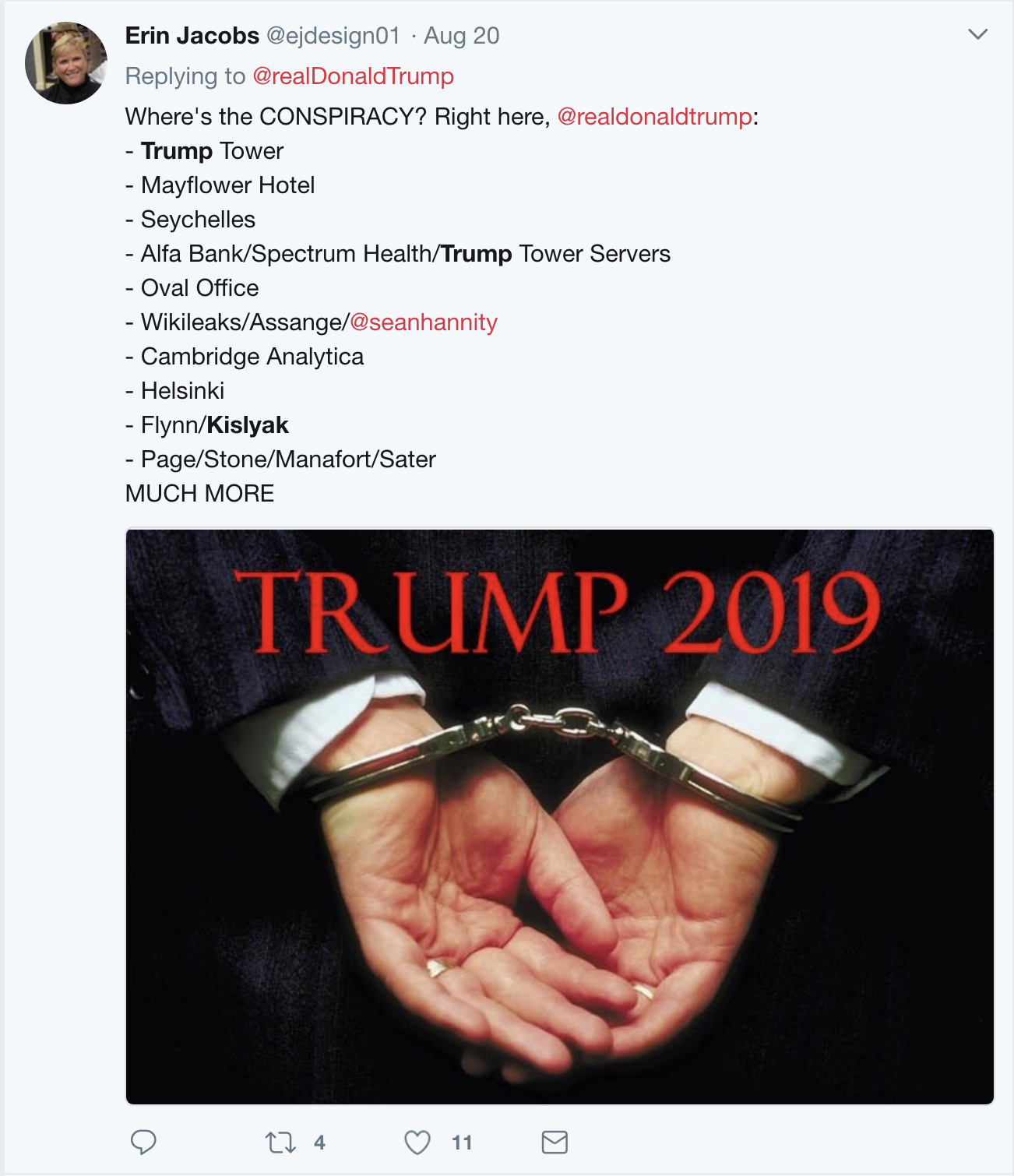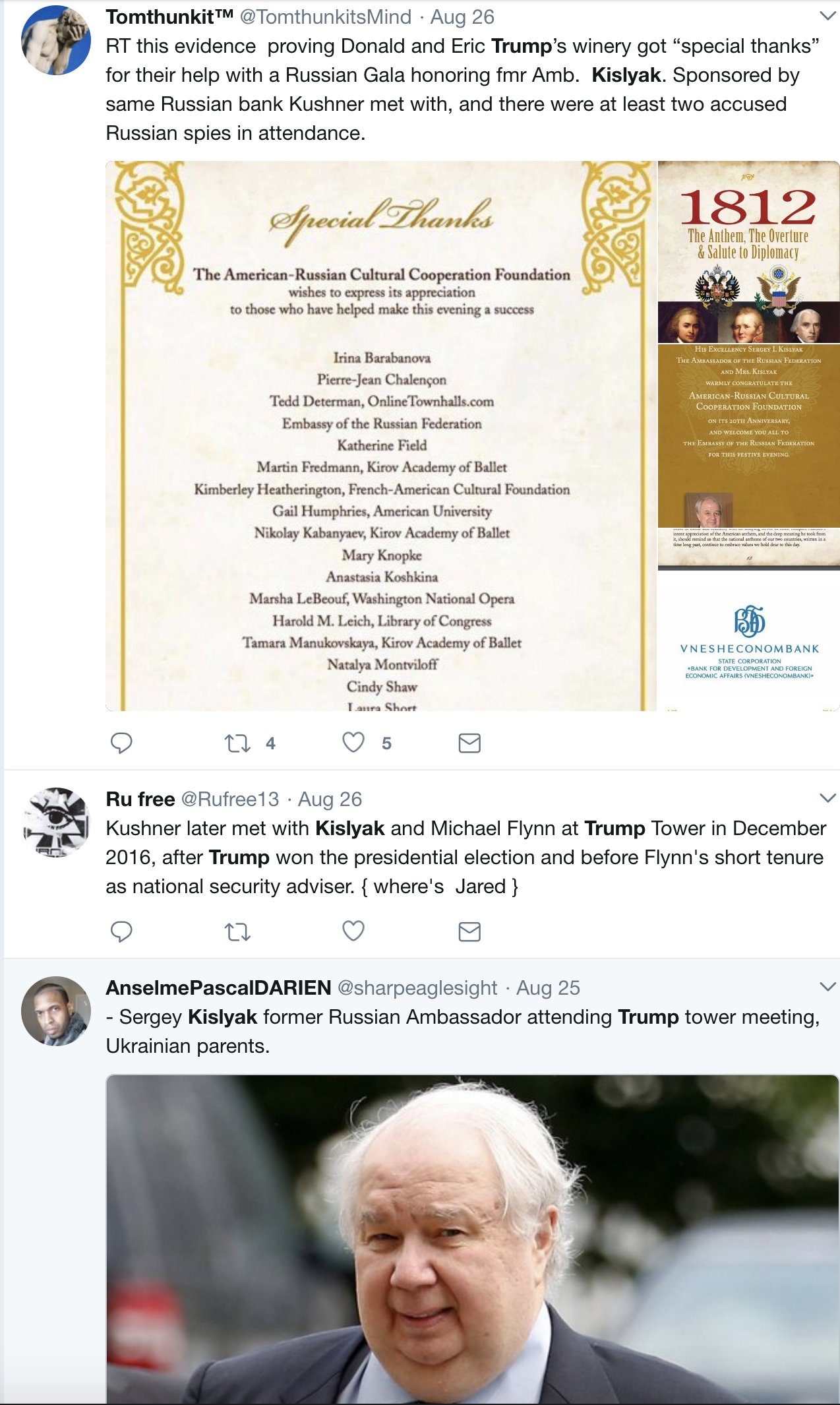The Russians have been meddling in more than just hacking the U.S. presidential and midterm elections. In fact, over the past two years, they have been pushing through some very questionable money transactions. Now, the Russian embassy in Washington, D.C. has come under the sharp eyes of American bank examiners.
It gets worse.
These examiners have flagged two transactions as particularly dubious — they occurred around the time of Donald Trump’s presidential election and his inauguration.
The first transaction happened on November 18, 2016 and was a $120,000 check to the man who was Russia’s ambassador to the U.S. at the time, Sergey Kislyak. The November check was double any previous deposit.
The second odd transaction occurred only five days after the president’s inauguration in late January. Kislyak tried to withdraw $150,000 in cash. Since President Barack Obama had just expelled 35 Russians the last day of December as retribution for Moscow hacking the Democrats, the bank was concerned that the ambassador intended to send the cash out with them.
Russian embassy spokesperson Nikolay Lakhonin released this statement to Buzzfeed News:
‘We are not going to comment on any concrete names and figures mentioned in BuzzFeed articles. All the transactions which have been carried out through the American financial system fully comply with the legislation of the United States. We consider the fact of such publications to be a violation of the Vienna Convention on Diplomatic Relations, 1961, which stipulates the basic principles of the receiving state’s commitments towards foreign missions.’
Buzzfeed News‘ investigative reporters discovered a number of irregular transactions in November 2017. These included $325,000 paid to the Russian Cultural Center in Washington, $2.4 million paid to small home-repair companies managed by a Virginia Russian immigrant, and a $29,000 wire transfer into the embassy’s state-side bank to “finance election campaign of 2016.”
When the investigators into the Russian attack went to Citibank where the embassy had its bank account in the U.S., working with the bank examiners, they found a deposited check to Kislyak in the amount of $120,000 marked “payroll.”
They also found that the embassy had paid the former ambassador $50,000 in 2015 and $53,538 in 2014 for unknown reasons. He put the money into his personal checking account, then he wired it to his Russian bank account. Typically, Kislyak did not put his salary into his account. Instead, he allowed it to accumulate in the embassy’s U.S. account.
Ten days after the election, the embassy cut a check to the former ambassador for $120,000. The check was marked as “payroll.” Kislyak deposited the money in his Citibank checking account, then wired the funds to his account in Russia in two $60,000 installments.
The bankers had sent a query to both the embassy and Kislyak asking about the $120,000 November 2016 deposit, but neither responded. A manager at the branch where the embassy had its account said the money was for the former ambassador’s salary that year, but the bank examiners could not confirm that.
The week after Trump’s inauguration, a Citibank relationship manager visited the diplomatic compound. The embassy asked him to withdraw $150,000 in cash. Typically, they withdrew $30,000 in cash every month. The embassy’s people told the manager that the money would go toward the salaries of embassy employees.
That set off alarms for the manager. He pressed the embassy about why the employees who had been returned to Russia needed so much cash here in the U.S. With no satisfactory answer, the Citibank account manager denied the request and the embassy withdrew this ask in February 2017.
Citibank sent Kislyak’s data to the U.S. Treasury Department’s financial crimes unit and the FBI shortly thereafter. Special Counsel Robert Muller worked with the FBI to scour the Russian embassy financial records. Kislyak is in Russia now and unable to travel in the U.S.
Featured image is a screenshot via YouTube.
















